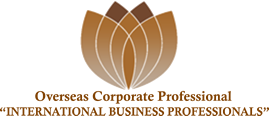Establishing a company in the USA can significantly help Indian Clinical Research Organizations (CROs) address the challenges and enhance their competitiveness and efficiency in the global market. Here are specific ways how having a presence in the USA can be beneficial:
1. Regulatory and Compliance Challenges
Simplified Regulatory Navigation
- Local Expertise: Establishing a company in the USA allows access to local regulatory experts who are well-versed in FDA requirements and other US-specific regulations, facilitating smoother and faster approval processes.
- Faster Ethics Approvals: With a local presence, the organization can build relationships with Institutional Review Boards (IRBs) for more efficient ethics committee approvals.
2. Operational Challenges
Enhanced Logistics and Coordination
- Efficient Logistics: A local office can improve coordination of logistics for clinical trials, ensuring timely shipment and management of biological samples and investigational products.
- Skilled Workforce: Access to the large pool of skilled professionals in the USA can help address workforce shortages and improve the quality and efficiency of trial operations.
- Proximity to Sites: Being closer to trial sites in the USA enhances site management capabilities, allowing for more effective monitoring and support.
3. Market and Business Development
Increased Credibility and Trust
- Building Trust: A physical presence in the USA helps build credibility and trust with local sponsors, pharmaceutical companies, and stakeholders, making it easier to secure contracts and partnerships.
- Brand Recognition: Establishing a brand presence in the USA can enhance reputation and recognition in the global market.
Market Insights and Adaptation
- Market Intelligence: A local presence provides better access to market intelligence, helping understand local market dynamics, patient demographics, and competitive landscape.
- Cultural Adaptation: Being in the USA allows the organization to better understand and adapt to cultural differences, improving patient recruitment and retention strategies.
4. Technological Challenges
Access to Advanced Technology
- Tech Infrastructure: The USA has a robust technological infrastructure, providing access to cutting-edge technologies and platforms that can improve data management, trial monitoring, and overall efficiency.
- Innovation Hub: Being in the USA, a hub for technological innovation, allows the organization to stay updated with the latest advancements and integrate innovative solutions into their operations.
5. Financial and Legal Issues
Simplified Financial Transactions
- Local Banking: Establishing a company in the USA simplifies financial transactions, reducing complexities related to currency exchange and international banking.
- Access to Funding: A local presence can provide access to local funding opportunities, including venture capital and grants specific to the clinical research industry.
- Legal Support: Having a local legal team can help navigate the US legal landscape, manage contracts, and mitigate legal risks more effectively.
6. Patient Recruitment and Retention
Improved Patient Engagement
- Proximity to Patients: Being in the USA allows for more direct engagement with patient populations, improving recruitment and retention rates.
- Local Partnerships: Collaborating with local healthcare providers and patient advocacy groups can enhance patient outreach and engagement efforts.
7. Quality Assurance and Control
Enhanced Quality Control
- On-Site Monitoring: A local presence enables more frequent and thorough monitoring of trial sites to ensure compliance with Good Clinical Practice (GCP) and other regulations.
- Training and Development: Local training programs can be more effectively implemented to maintain high standards of quality and compliance.
Strategic Steps for Establishing a Presence in the USA
- Conduct Market Research: Understand the specific requirements and dynamics of the US clinical research market.
- Engage Legal and Financial Advisors: Hire experts to help navigate the regulatory, legal, and financial aspects of establishing a business in the USA.
- Build a Local Team: Hire experienced local professionals to manage operations, regulatory compliance, and business development.
- Invest in Technology: Adopt advanced technological solutions for data management, trial monitoring, and patient engagement.
- Establish Partnerships: Collaborate with local CROs, healthcare institutions, and regulatory bodies to enhance operational efficiency and market reach.
- Focus on Quality and Training: Implement comprehensive quality assurance programs and ongoing training for staff to ensure high standards are maintained.
Conclusion
Establishing a company in the USA can provide Indian CROs with numerous strategic advantages, helping them overcome regulatory, operational, market, and technological challenges. It enhances credibility, improves logistics, facilitates compliance, and provides access to advanced technologies and skilled professionals. By leveraging these benefits, Indian CROs can significantly strengthen their global presence and competitiveness.


